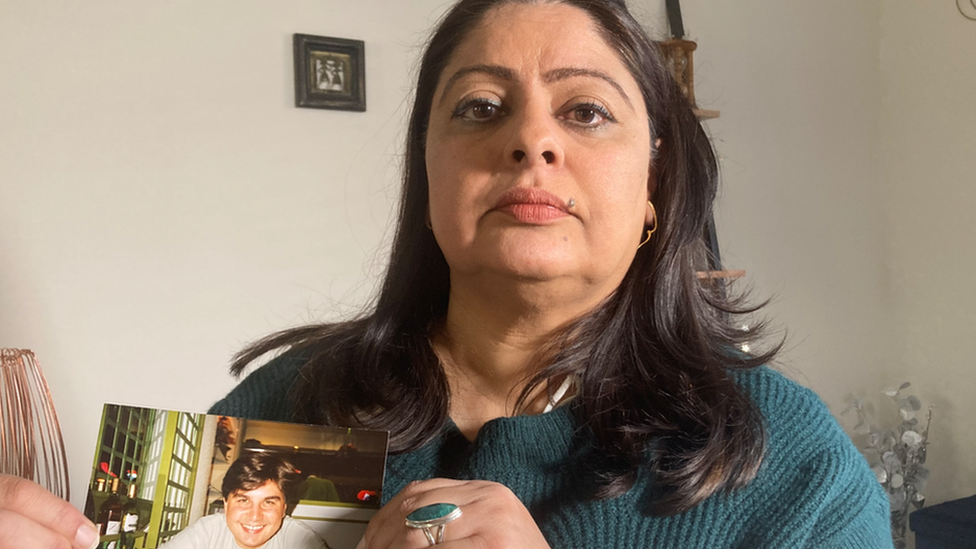'Our daughter should not have died from Covid jab'
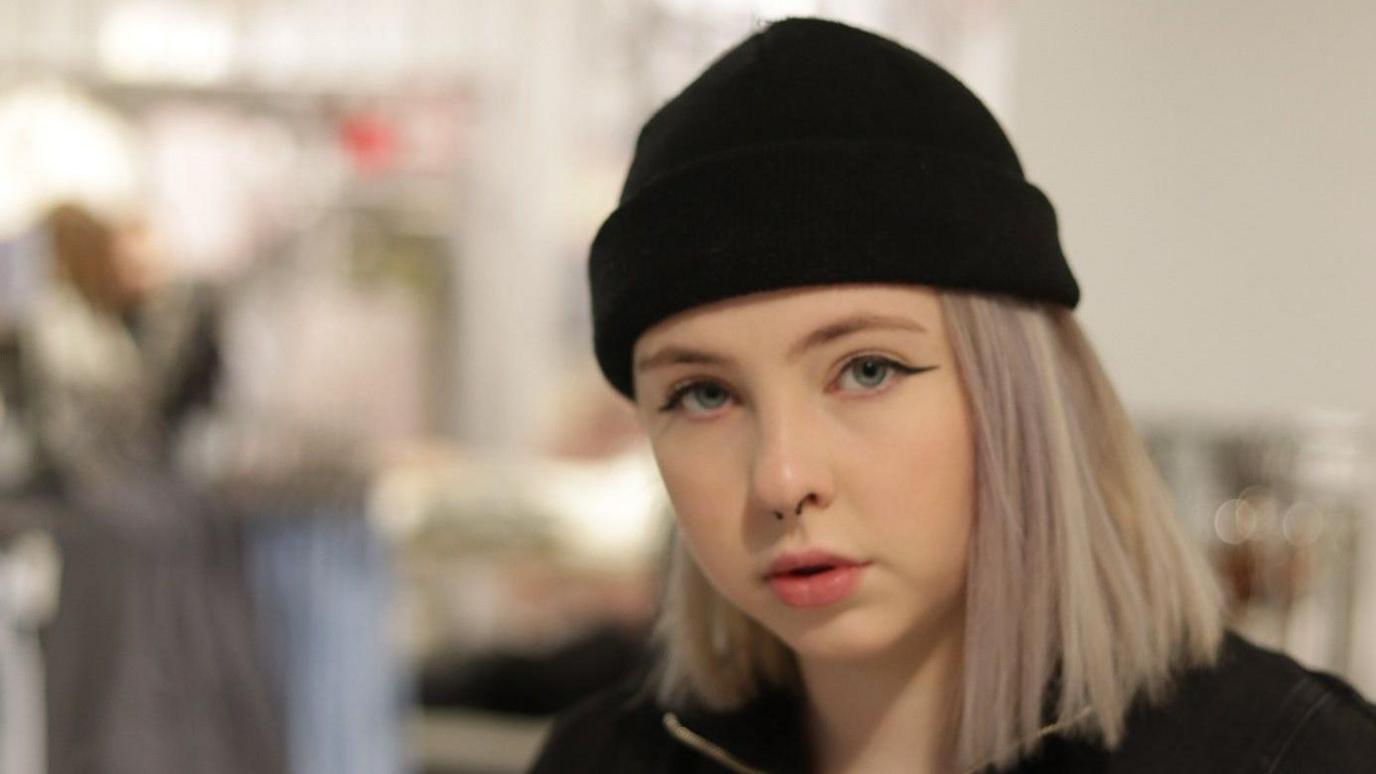
Marina Waldron, 21, died of complications after being given the AstraZeneca Covid jab
- Published
The parents of a young woman who died after being given an AstraZeneca Covid jab have accused the NHS of failing to pass on known safety warnings about the vaccine.
Marina Waldron, 21, visited hospital with excruciating headaches three times in the week before her fatal collapse from a brain haemorrhage in March 2021.
Max and Liz Waldron said that despite her deteriorating condition, A&E doctors had seemed unaware of the emerging side-effects associated with the jab and warnings that had been issued.
Another family whose son, Oli Akram Hoque, died from the same complications a few days after Marina, are also calling for lessons to be learned.
A Department of Health and Social Care (DHSC) spokesperson said: "Throughout the pandemic the health system responded quickly to reports of extremely rare cases of complications following vaccination.”
The Oxford-AstraZeneca Covid vaccine was estimated to have saved millions of lives, external during the pandemic, but as in Marina and Oli's cases, caused rare - and sometimes fatal - blood clots.
An AstraZeneca spokesperson said the vaccine had been "recognized by governments around the world" as helping bring the pandemic to an end.
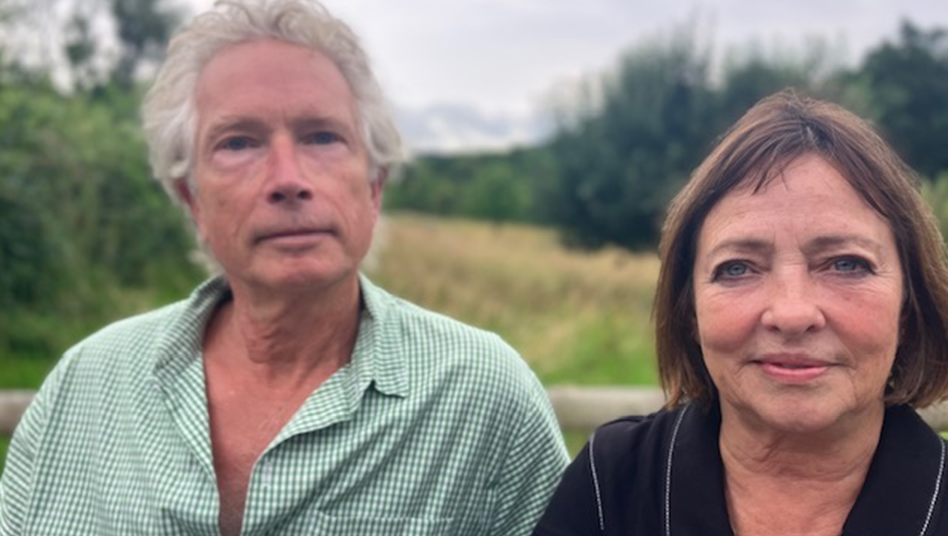
Max and Liz Waldron believe earlier awareness of the jab's rare complications could have saved Marina
Marina, from the Forest of Dean in Gloucestershire, was just starting her career in film when she was given her first dose of the AstraZeneca jab on 11 March 2021.
She had developed a headache and sickness by 22 March and went to a London hospital only to be sent home with migraine tablets, despite mentioning she had had the jab recently.
Mrs Waldron, 64, said Marina deteriorated the following day and was this time discharged by an A&E department, again with a migraine diagnosis and no brain scan.
On 27 March, her parents were so worried they took her to A&E in Gloucester. She died on 31 March at Southmead Hospital, Bristol, after suffering a heart attack and brain haemorrhage.
"We weren’t able to go in. We weren’t able to say 'don’t you understand she hasn’t drunk or eaten'. They [the hospital] just sent her back," said Mrs Waldron.
"But the next day it was worse and she started having issues with her arm - she was lifting up her arm and holding it, and that’s when it all went mad."
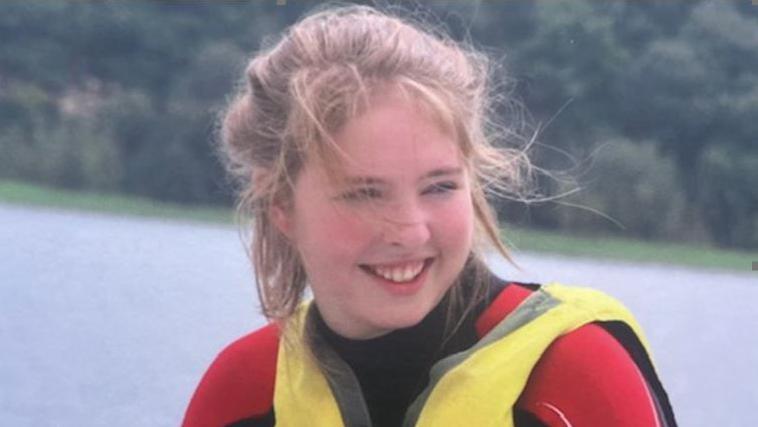
The family's solicitor said Marina's case fell into a gap between risks of the jab being known and frontline staff being warned
At Marina's inquest in December 2023, a coroner determined her death had been caused by a combination of factors: intracerebral haemorrhage, cerebral venous sinus thrombosis, and vaccine-induced immune thrombocytopenia and thrombosis due to the AstraZeneca vaccine.
While the coroner found Marina had died from a recognised but very rare complication of the AstraZeneca vaccine, he did not find fault with the NHS for failing to diagnose it quickly enough.
The Waldrons want to know why medical professionals were not informed about the risks associated with the vaccine earlier when other countries were putting a halt on the vaccine and why appropriate diagnostic measures were not taken promptly.
They believe that earlier awareness could have made a significant difference in Marina’s case.
'She could have been saved'
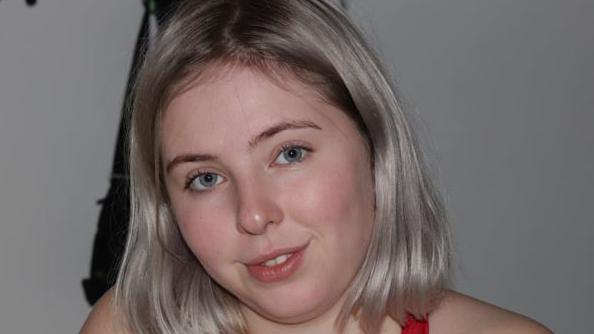
Marina had just started a career in film when she fell fatally ill
Mrs Waldron said: "It was only after a couple of days in hospital that they took us to one side and said 'we think it’s the vaccine', and we said 'we've been banging on about this vaccine right from the beginning and every single person said it wasn’t anything to do with that'.
"They didn’t even bother to scan her.
"There was a possibility, a chance she could have been saved."
Their solicitor, Lynda Reynolds from the Hugh James practice, said there seemed to have been a gap between advice being published on the government's public website on 18 March to urge people with concerns to attend A&E and clinicians being told on April 7 to investigate any potential symptoms.
She said: "Unfortunately for Marina, she fell in that gap. She's not the only one."
Could doctors have been warned earlier?
15 March: Germany, France and Italy halt Astra Zeneca rollouts
A week before Marina fell ill, Germany, France and Italy had halted rollouts of the AstraZeneca jab after a series of incidents in Europe involving blood clots, even though the World Health Organisation did not feel there was enough evidence to prove a link.
18 March: five cases identified of blood clots in the brain (aged 18-59) - one death
A few days later, five cases of blood clots in the brain had been identified in the UK - one of them fatal. The NHS carried on giving the vaccine to young people, although it advised anyone with a headache lasting more than four days after vaccination should seek medical advice, as a precaution.
25 March: NHS Blood and Transplant issues, external alert to specialist staff
The alert was issued after a rise in the number of organ donors dying from blood clots was noticed. The statement said: "I would ask you to be alert to the possibility of this syndrome in any patient within 28 days of receiving Covid vaccination with thrombosis or unexplained thrombocytopaenia."
5 April: Oli Akram Hoque goes back to hospital
Oli had been suffering from progressively worse headaches before being turned away by a GP. He died 10 days later of cerebral venous sinus thrombosis.
7 April: New advice to healthcare professionals
Advice from the Medicines and Healthcare Regulatory Authority (MRHA) mentioned a possible link between the AstraZeneca Covid vaccine and specific types of blood clot. Both families say this should have been issued earlier.
'An amazing girl'
During the inquest expert evidence suggested that had Marina's brain scans been carried out earlier, it would not have made a difference.
But Ms Reynolds said a side-effect of the vaccine is to make blood platelets clump together, adding: "The scan may or may not have shown what was developing.
"It was clear that Marina's platelets were continuing to deteriorate, and obviously, had she been properly assessed and reviewed, that would have been found because it was in her previous blood test."
Mrs Waldron is keen people do not forget her daughter, whose organs were donated after her death.
"We don’t want the amount of people who have died to be swept under the carpet because it's taken over three years to get to the coroner's court," she said.
"Her death had not been registered [until then] as a vaccine death.
"She was an amazing girl. She wasn’t frightened of anything."
Mr Waldron added: "We don’t know how many other people went through the same thing and died from the same thing as Marina."
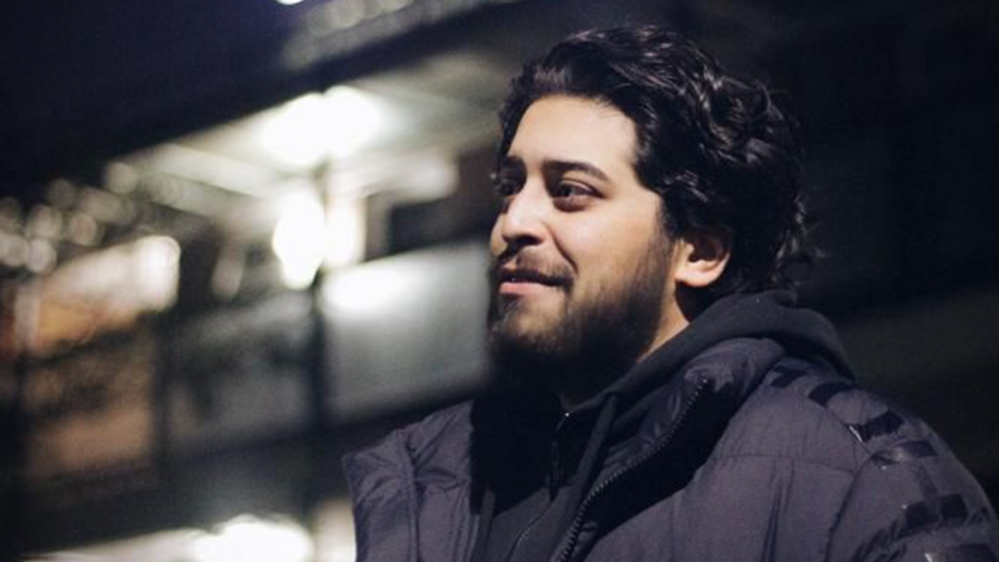
Oli Akram Hoque also died after receiving the jab
Oli Akram Hoque, 26, from London, also suffered rare and fatal complications after receiving the AstraZeneca vaccine, dying from a blood clot on the brain on 15 April.
He had received his jab on 19 March 2021 and began to suffer headaches from 1 April.
His headaches became progressively worse and he went to an A&E department at a London hospital on 4 April.
At his inquest, the coroner concluded that on his first visit to hospital, Oli had not presented with any symptoms which would have required an emergency department assessment.
The next evening he was taken to the same London hospital which Marina had attended the month before with a severe headache.
He saw a GP there who did not think he needed an assessment but the next day he was rushed back to hospital after having seizures.
His sister Anika Hoque said: "He was saying 'why do I feel like this?' and he was pressing his hands... the doctor didn’t think that it was anything to be concerned about."
The MHRA told Oli's inquest that starting from 25 February 2021 it had identified three cases of blood clots to the brain associated with the AstraZeneca jab.
But the MHRA could not fully consider these cases as they did not receive all the necessary clinical information from hospitals.
The coroner raised concerns about this with the DHSC, saying the MHRA should be able to compel hospitals to give them such information as soon as possible.
The MHRA said: "Regarding the scope of MHRA’s powers to compel information to be provided by hospitals to patients, the Agency does not have legal powers to compel healthcare professionals to provide additional information."
Miss Hoque said the AstraZeneca jab had already been suspended in many parts of Europe at the time of her brother's death.
"This is information that I had to find through the internet," she added.
"My GP she said the exact same thing, so it was clear that information was available at the time but the doctors in A&E said they were not aware, which was surprising... so obviously it cost lives."
The DHSC said: “Our sympathies are with the families of Marina Waldron and Oli Hoque.
"This government is committed to learning lessons through the Covid-19 inquiry."
It said vaccines would be discussed in Module 4 of the Covid-19 Inquiry, external, with hearings planned to start from 14 January to 30 January.
It added the "health system quickly responded to reports from the MHRA of extremely rare cases of concurrent thrombosis and thrombocytopenia following vaccination with the first dose of AstraZeneca."
In April 2021, the Joint Commission on Vaccination and Immunisation advised adults under 30 without underlying health issues should be offered an alternative vaccine to AstraZeneca if available.
This was later extended in May 2021 to adults under 40 without underlying health issues.
'Six million lives saved'
A spokesperson for AstraZeneca told the BBC “Our sympathy goes out to anyone who has lost loved ones or reported health problems. Patient safety is our highest priority.
"From the body of evidence in clinical trials and real-world data, the Oxford-AstraZeneca vaccine has continuously been shown to have an acceptable safety profile and regulators around the world consistently state that the benefits of vaccination outweigh the risks of extremely rare potential side effects.
“We are incredibly proud of the role the Oxford-AstraZeneca played in ending the global pandemic.
"According to independent estimates, over six million lives were saved in the first year of use alone and over three billion doses were supplied globally.
"Our efforts have been recognized by governments around the world and are widely regarded as being a critical component of ending the global pandemic.”
Get in touch
Tell us which stories we should cover in Gloucestershire
Follow BBC Gloucestershire on Facebook, external, X, external and Instagram, external. Send your story ideas to us on email or via WhatsApp on 0800 313 4630.
- Published9 May 2024
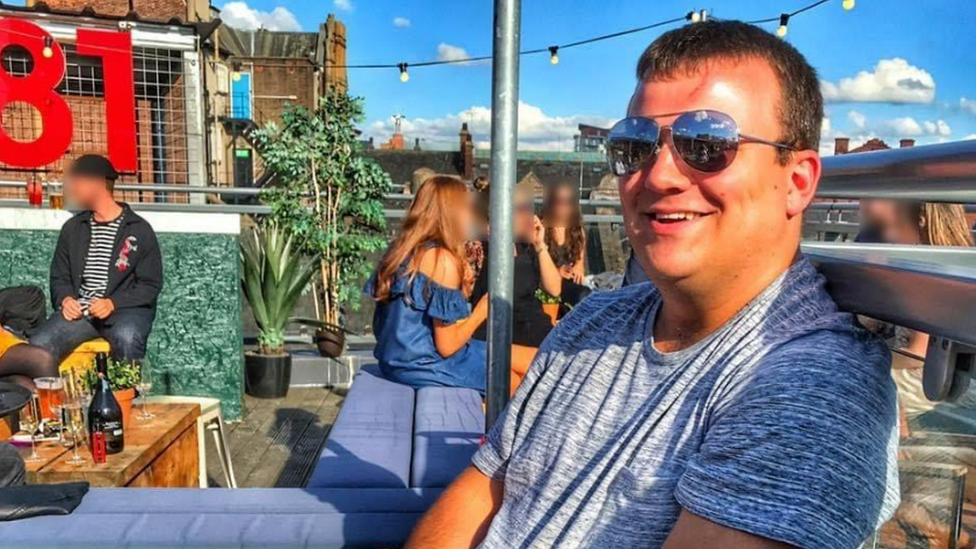
- Published12 July 2024
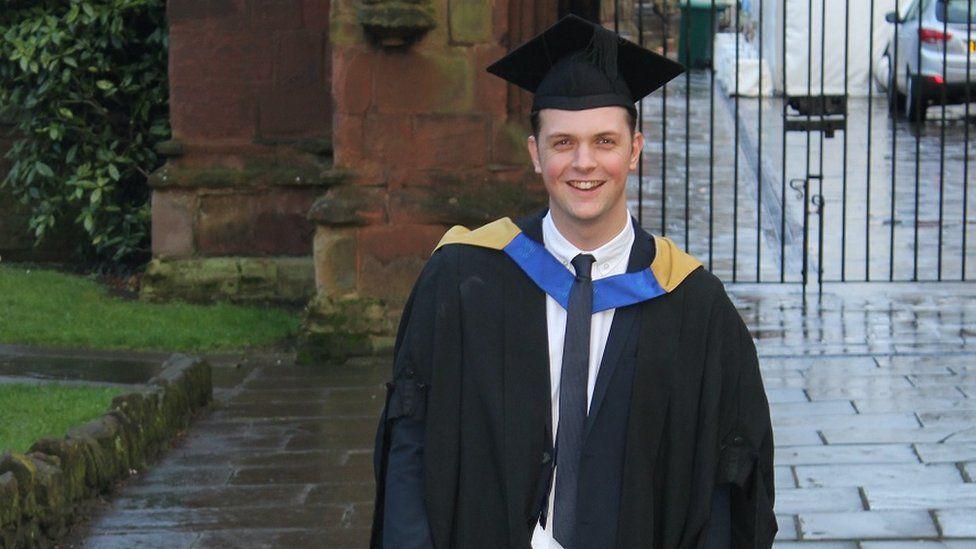
- Published22 February 2024
